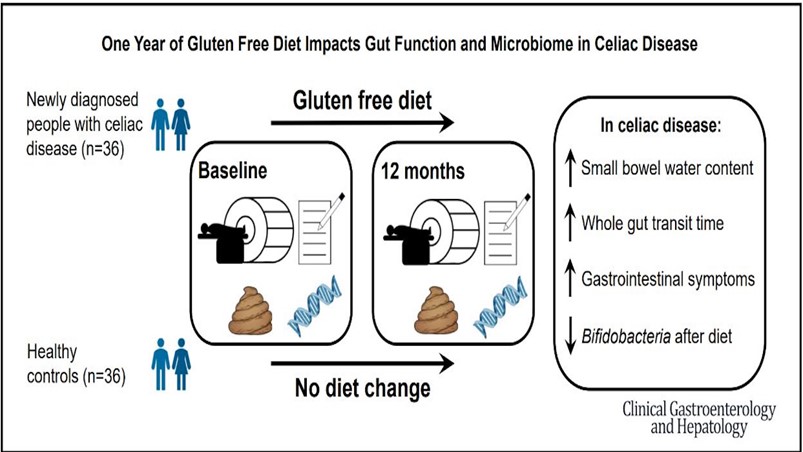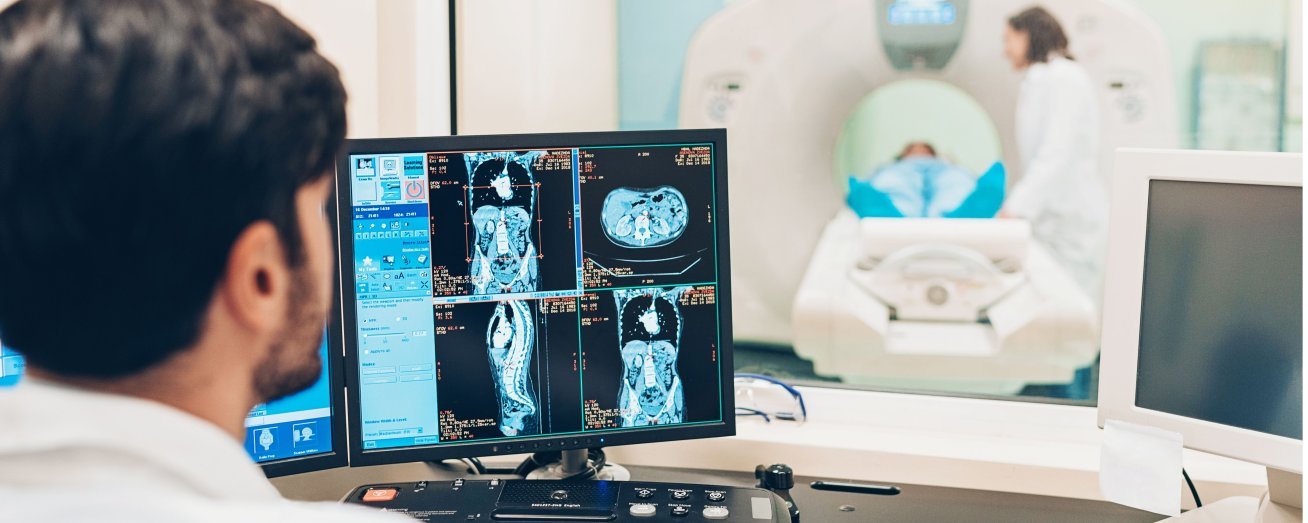Celiac disease is a chronic disease caused in genetically predisposed individuals by an autoimmune reaction to the intake of gluten which damages the intestinal mucosa, causing symptoms such as abdominal pain, bloating, diarrhea or constipation, and weight loss.
The disease is kept under control with a strict gluten-free diet which manages symptoms and promotes recovery of intestinal mucosa function. In order to further investigate the effects of the disease and the gluten-free diet on the gut, a team of researchers from the University of Nottingham (UK) used magnetic resonance imaging (MRI) to compare the function of the gut of celiac subjects before and after the gluten-free diet compared to healthy individuals.
The most interesting data that have emerged from this new research concern changes in the intestinal microbiota in celiac subjects, before and after the gluten-free diet.
The comparison study with healthy volunteers
The team of British researchers recruited 36 people newly diagnosed with celiac disease participants and 36 non-celiac, healthy participants. With magnetic resonance imaging the fluid content of the small intestine, intestinal transit time and colonic volume were assessed, while with stool analysis the researchers obtained a picture of the composition of the gut microbiota. The celiac patients then followed a gluten-free diet for one year and returned to repeat the study together with healthy controls.
The effects of the gluten-free diet on the gut microbiota
The data from the first test showed a higher presence of fluid in the small intestine and slower intestinal transit in celiac subjects compared to healthy controls. Furthermore, with regard to the gut microbiota, celiacs had higher levels of 'bad' bacteria such as Escherichia coli.
After one year on the gluten-free diet, intestinal symptoms (fluids and transit) improved in the celiacs, although they were still not comparable to healthy subjects. Furthermore, as a result of the gluten-free diet, the level of some of the 'good' bacteria in the microbiota, such as bifidobacteria, was reduced in association with alterations in carbohydrate-active enzyme (CAZymes) profiles.
In the conclusion, the authors write that "celiac disease affected gut function and microbiota. The gluten-free diet ameliorated, but did not reverse, these effects by significantly reducing bifidobacteria associated with reduced intake of resistant starch and arabinoxylan from wheat."
According to Luca Marciani, Professor of Gastrointestinal Imaging at the University of Nottingham:
"It was particularly interesting to see how the imaging results on gut function correlated with changes in the bacteria of the colonic microbiota. These results expand our understanding of gut function and physiology in coeliac disease and open up the possibility of developing prebiotic treatments to reverse the negative impact of the gluten-free diet on the microbiome'.

Visca, Alessandro. “Celiac disease, the impact on the intestine studied with magnetic resonance imaging.” Medico e Paziente, 2025, https://doi.org/https://medicoepaziente.it/2025/celiachia-limpatto-sullintestino-studiato-con-la-risonanza-magnetica/?utm_source=newsletter&utm_medium=mail-893.




